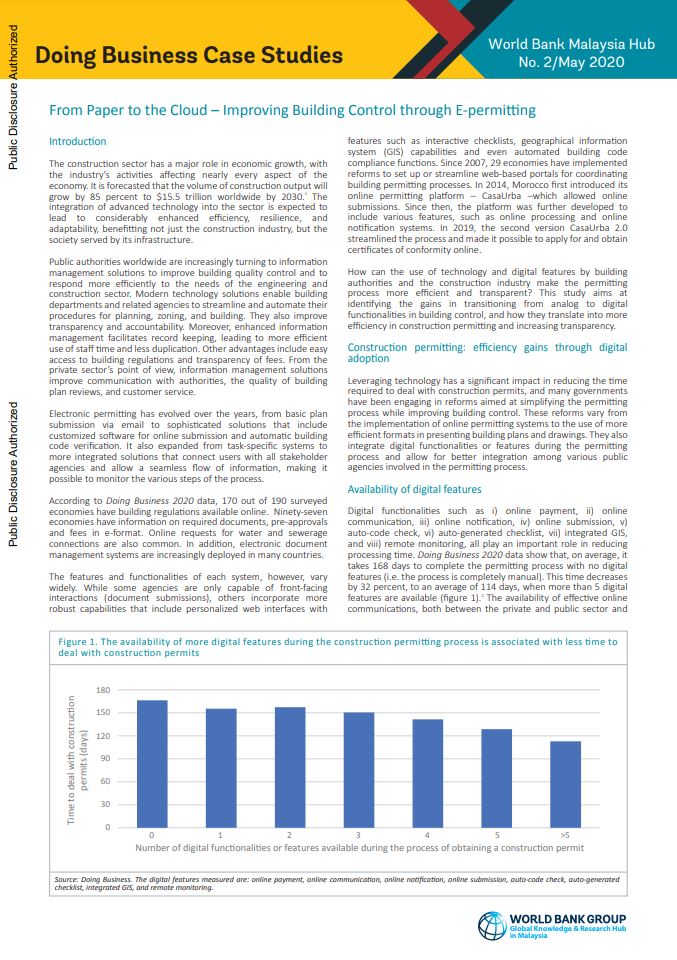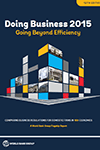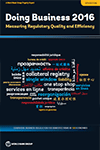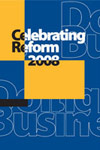
Dealing with Construction Permits: From Paper to the Cloud : Improving Building Control through E-permitting
The construction sector has a major role in economic growth, with the industry's activities affecting nearly every aspect of the economy. It is forecasted that the volume of construction output will grow by 85 percent to 15.5 trillion US Dollars worldwide by 2030. The integration of advanced technology into the sector is expected to lead to considerably enhanced efficiency, resilience, and adaptability, benefitting not just the construction industry, but the society served by its infrastructure.

Dealing with construction permits: Private sector participation in construction
This year Doing Business deals with private sector participation in construction regulation. Involving private sector engineers or firms in construction regulation is a trend that has been gaining traction in economies around the world. Some form of private sector participation in construction regulation is employed in 93 of the 190 economies covered by Doing Business.

Zoning and urban planning: Understanding the benefits
Zoning is an essential tool in successful urban planning. Zoning regulations can provide a useful framework for investors and developers by specifying the most appropriate location for their projects before they apply for a construction permit. Zoning practices vary widely around the world.

Dealing with construction permits: Assessing quality control and safety mechanisms
This year Doing Business introduces a new indicator to measure the quality of the construction permitting system. The case study presents the summary of the main findings of the new indicator. When it comes to accessibility of regulations, the findings show that in 68% of economies the building regulations are available online. Finally, the analysis shows that economies with more efficient construction permitting systems have better quality control and safety mechanisms in place.

What role should risk-based inspections play in construction?
Construction accounts for a large share of GDP in most economies and is often used by governments to stimulate economic activity because of its benefits for people across socioeconomic strata. There has been growing consensus in the construction industry on the need for supervisory bodies to consider the potential risks imposed by a building, rather than applying the same inspections standards to all buildings, however introducing risk-based inspections is challenging.

Georgia: Licensing 159 activities—not 909
Georgia’s old byzantine system of construction licenses and permits used to deter entrepreneurs from building legally. But as the construction sector was heating up in Tbilisi, Georgia’s government decided to lift bureaucratic hurdles by passing 2005’s Law on Licensing and Permits and Regulation 140 (on issuing construction permits) just a few weeks later. The re¬sult: the number of activities requiring a business license fell from 909 to 159.

Czech Republic: Creating a new profession from scratch
Until 2007, all construction permits in the Czech Republic were governed by a 1976 law. As in many other Eastern European countries, land allocation and construction were based mostly on administrative decisions and a planned economy, not supply and demand.

Colombia: Private help for a public problem
In 1995, Colombia became the first country in all of Latin America to privatize its building-permit review process. Fourteen years after its initial implementation, the system’s impact on the construction process is palpable. This case study looks at the reform and its impact.
